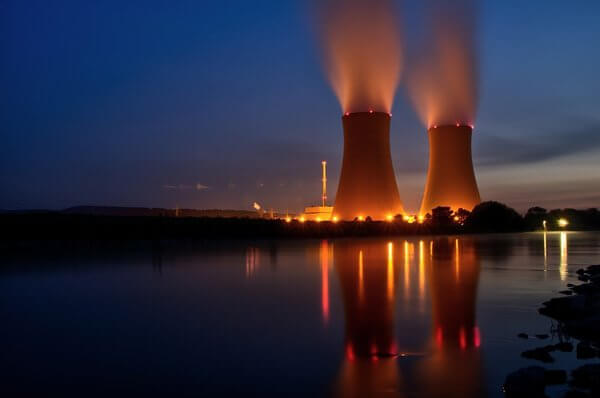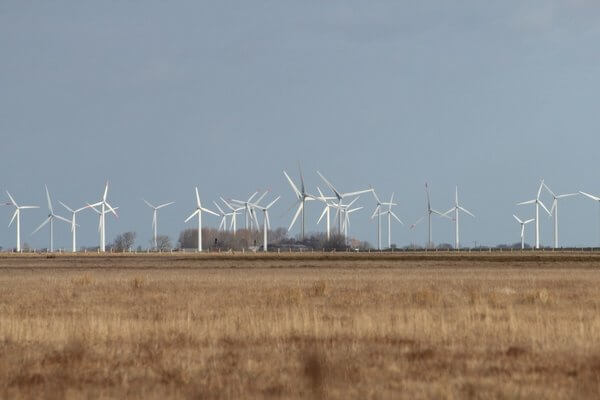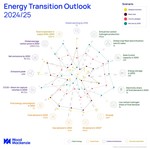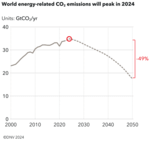News Release from windfair.net
Wind Industry Profile of
Germany's energy policy put to the test
While there have been repeated voices in the past warning about too much dependency on Russian raw materials, these have been studiously ignored. "This is not a new story — from Iran to Saudi Arabia to Iraq and Venezuela — dictators have derived their strength from the fossil resources within their borders, flexing their powers because of their control of a finite resource made valuable only because of our addiction to it. Much of world history has been determined by the haves and have-nots when it comes to energy. The Ukrainian people are the latest victims of the world’s overreliance on fossil fuels, simply by way of their geography, separating Russia from a convenient gas client in Europe." This is how Admiral Dennis V. McGinn sums it up in The Hill.
Above all, Europe's largest economic power, Germany, is dependent on Russian raw materials: the share of Russian oil is currently about 32 percent, that of Russian hard coal almost 50 percent, and for gas it is even 55 percent. How can Germany reduce this dependency as quickly as possible?

Longer operating times for the remaining nuclear power plants? No, the responsible ministries ultimately decided. (Image: Pixabay)
In the first days after the outbreak of war, all avenues seemed possible, even a phase-out of the nuclear phase-out was on the table. Yet only three reactors are still running in Germany: Emsland (Lower Saxony), Isar 2 (Bavaria) and Neckarwestheim 2 (Baden-Württemberg), which are all scheduled to be shut down at the end of the year.
While Baden-Württemberg was "open" to consideration, Bavarian Prime Minister Markus Söder in particular was vocal in his support for a lifetime extension: "Of course, an extension would be possible from a purely technical point of view. The question is whether you want it politically," he said on television.
In Lower Saxony, where the Emsland reactor is located, the view is different. "We got out of nuclear energy with a multiple switch - we won't repeat that again," Environment Minister Olaf Lies told the Neue Osnabrücker Zeitung (NOZ). He added that the shutdown plans were far too advanced and "... it's not like you go into the storage facility and just pick up a new fuel rod." A spokeswoman for PreussenElektra, operator of the Bavarian nuclear power plant Isar 2, confirmed this to the Rheinische Post: "According to an initial estimate, we assume that fresh fuel elements could be available in a good 1.5 years."
Far too long, which is why the Federal Ministry of Economics and the Federal Ministry for the Environment are now finally putting a stop to this idea: "Both ministries have come to the conclusion that an extension of operating times could only make a very limited contribution to solving the problem, and at very high economic costs, constitutional and safety risks."
Dependence on natural gas is also at the heart of Germany's National Academy of Sciences' (Leopoldina) thinking: "As a short-term measure (coming weeks and months), the ad hoc opinion discusses, for example, liquefied natural gas imports, natural gas savings, and filling gas storage facilities as a buffer for the winter. In addition, to reduce natural gas demand, more coal-fired power generation could be relied upon."
At the same time, however, the Academy stresses the importance of maintaining the coal phase-out through 2030 - especially in light of new record emissions last year, reported by the International Energy Agency (IEA) on Tuesday - and due primarily to the sharp increase in demand for coal. Ultimately, therefore, the solution can only lie in the greater expansion of renewable energies, as EU Commission President Ursula von der Leyen also emphasizes: " The quicker we switch to renewables and hydrogen, combined with more energy efficiency, the quicker we will be truly independent and master our energy system."

In view of constantly rising CO2 emissions, the solution can only lie in the expansion of renewables - otherwise the war will directly be replaced by the climate catastrophe (Image: Pixabay).
And WindEurope CEO Giles Dickson also stresses in an urgent appeal to European countries: "More than ever Europe now needs to tap into its massive wind energy resources. Speeding up the growth of wind is central to achieving energy security. And we need to do it with European technology. Europe must do everything to preserve our world-leading wind energy supply chain. Accelerate permitting. Have smarter wind auctions that factor in wind energy’s contributions to a robust, resilient and circular economy. And boost research and development."
He's got a point there, right?
- Author:
- Katrin Radtke
- Email:
- press@windfair.net
- Keywords:
- Germany, energy policy, demand, Russia, Ukraine, war, raw materials, oil, gas, coal, WindEurope, renewable energy, dependence, idea, nuclear


























